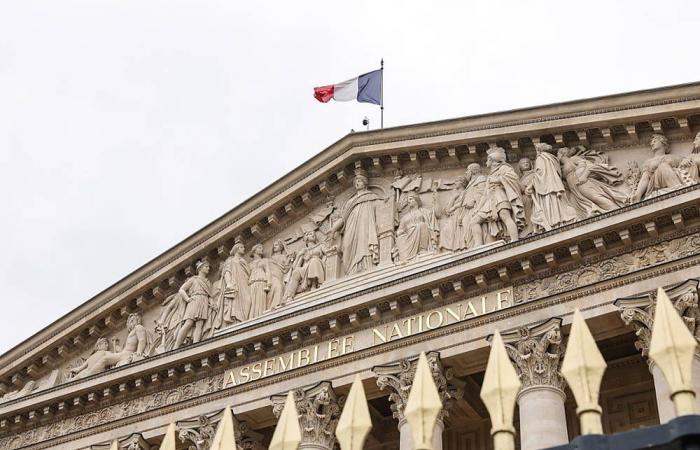The first round of the most scrutinized legislative elections in recent history in France began on Saturday, with the opening of polling stations in certain overseas territories. The far right is the big favorite, ahead of the left and the presidential camp.
Some 49 million French voters are called upon to renew the entire National Assembly, i.e. 577 deputies, which could permanently shake up the political horizon. The first round takes place on Sunday and the second on July 7.
President Emmanuel Macron called the snap election by announcing the dissolution of the assembly on June 9, the evening of the far-right’s victory in the European elections.
On Saturday, French voters in Saint Pierre and Miquelon, an archipelago in the North Atlantic near Canada, opened the ball at 8:00 a.m. local time (midday in Switzerland), and those in the Antilles, Guyana, French Polynesia and those living on the American continent followed suit. Mainland French voters will go to the polls on Sunday.
First results from 8:00 p.m. Sunday
On Saturday, some activists from the feminist movement Femen led an action at the Trocadéro, facing the Eiffel Tower: topless and covered in slogans against the far right, they cleaned the square with ‘anti-racism remover’.
With the postponement of holidays and an explosion in the number of proxies, many voters are expected to turn out for this suspenseful election, the main unknown of which is whether the Assembly will be dominated for the first time by the far right since the Second World War.
Can the young leader of the far-right National Rally (RN) party, Jordan Bardella, 28, replace Gabriel Attal, the leader of the outgoing majority, as Prime Minister? Can the left spring a surprise? In the absence of definitive answers, the first results expected from 8:00 p.m. on Sunday should provide some clarity.
Expected increase in participation
The lightning campaign ended at midnight on Friday. Until Sunday evening, candidates are no longer allowed to speak to the media or travel to the field, and the publication of polls is prohibited.
Pollsters and politicians expect a sharp increase in turnout compared to the 2022 legislative elections, for which 47.51% of voters turned out. This time, it could reach two-thirds of registered voters.
This upsurge is partly due to the potentially historic consequences of these legislative elections.
There are ‘two dynamics’, analyses Brice Teinturier, from the Ipsos polling institute. ‘A dynamic of hope, left-wing voters say to themselves that, suddenly, there could be an alternation (…) and this is even more the case among RN voters’.
‘And an engine of mobilization which is the negative politicization, the fear, the fear aroused by the RN and, in part of the electorate also, by (…) the left coalition’, the New Popular Front (NFP ) which brings together the Socialist Party, the Ecologists, the Communist Party and La France insoumise (radical left).
Macron camp under pressure
Signs of the expected strong mobilization: the number of proxies has exceeded 2 million, and online votes open until Thursday to French people living abroad have reached a record of 410,000 (250,000 in 2022).
Two opinion surveys published Friday credit the far-right camp with 35 to 36.5% of the vote. The NPF is given around 27.5-29%, the Macronist camp at 20.5-21%. According to certain surveys, obtaining an absolute majority is now possible for the RN and its allies.
The projections for the seat, however, come up against serious unknowns, starting with the number of possible three-way races on Sunday evening (three candidates in the second round), and the number of withdrawals in the hours that will follow in an attempt to unite votes against the RN.
The pressure is greatest on the president’s camp. The latter promised on Thursday ‘the greatest clarity’ on the attitude to follow between the two rounds. Several figures in his camp are pushing for a clear withdrawal agreement.
Mr Macron will meet the head of government and his ministers at the Elysée presidential palace on Monday at noon, six days before the second round, government sources have told AFP. The issues of withdrawals and strategy against the far right will undoubtedly be on the agenda of the discussions.
/ATS






